A heart-wrenching tale of a newborn baby monkey, Alba, and her mother, Anna, whose early neglect challenges their bond. As Alba faces struggles no newborn should endure, hope flickers when nature and community intervene to restore what was lost.
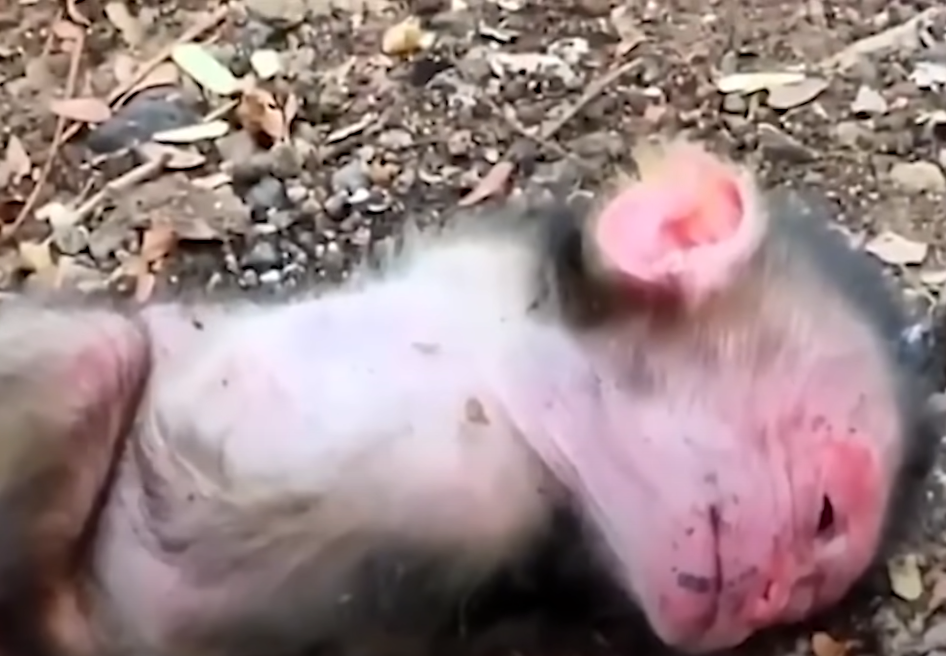
Anna, the mother monkey, had always been strong-willed and independent. When her baby, Alba, was born, her reaction was far from tender. Instead of embracing her maternal instincts, Anna distanced herself from Alba, seemingly uninterested in nurturing her newborn.
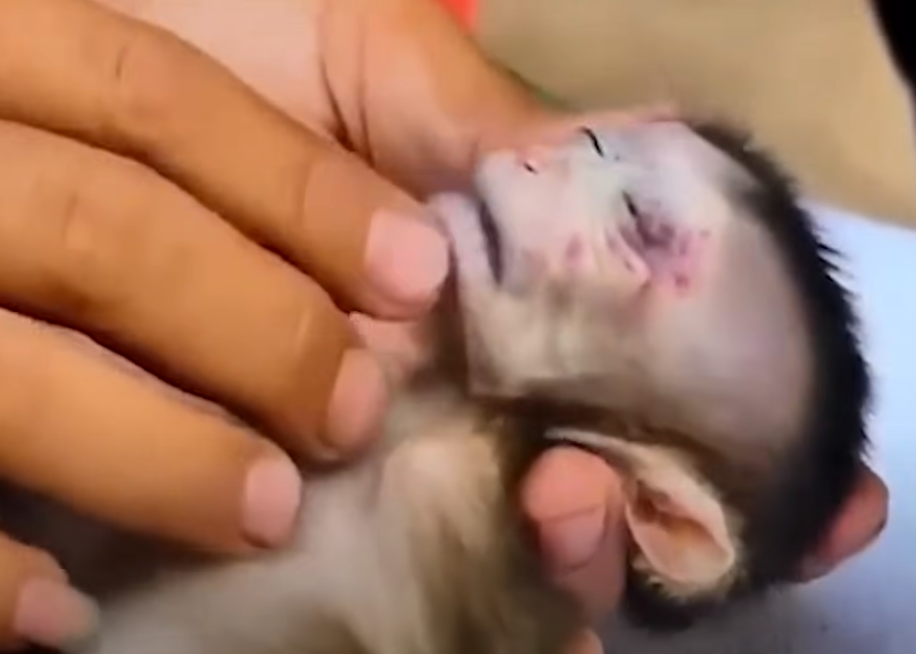
The little baby monkey, Alba, cried softly, reaching out for warmth and milk. But Anna, consumed by her own restlessness, often pushed her away. When Alba tried to cling to her mother, she was met with coldness. Anna seemed to discipline the baby too harshly for her age, scolding Alba even for innocent cries of hunger.
The other monkeys in their troop noticed. Some turned away, unwilling to intervene, while others whispered among themselves about Anna’s behavior. But one elder monkey, wise and experienced, decided to act.
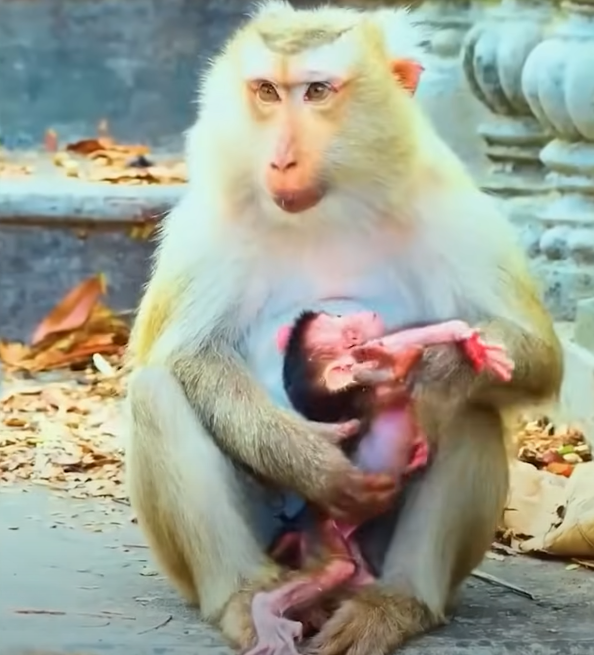
Late one afternoon, the elder approached Anna, chattering gently, trying to remind her of the bond she had seemingly rejected. Alba, weak from lack of milk, clung desperately to the elder’s fur. The troop watched as the elder brought Alba close to Anna, encouraging her to nurse her baby.
Anna hesitated, her gaze shifting between her baby and the troop. It was as if a flicker of realization sparked within her. Alba’s tiny eyes, filled with innocence and desperation, finally seemed to reach her heart. Slowly, Anna reached out, cradling Alba for the first time in days. She nursed her baby, offering the milk that Alba so desperately needed.

The transformation wasn’t immediate, but it was a start. Over time, Anna’s instincts began to bloom. She started caring for Alba, albeit clumsily at first. With patience and encouragement from the troop, Anna and Alba began to rebuild their bond.
The story of Anna and Alba is a reminder that love and care are not always instinctive, but they can be nurtured with time, patience, and support. Alba’s survival and Anna’s journey toward becoming a loving mother teach us that even when life begins with hardship, healing is always possible.
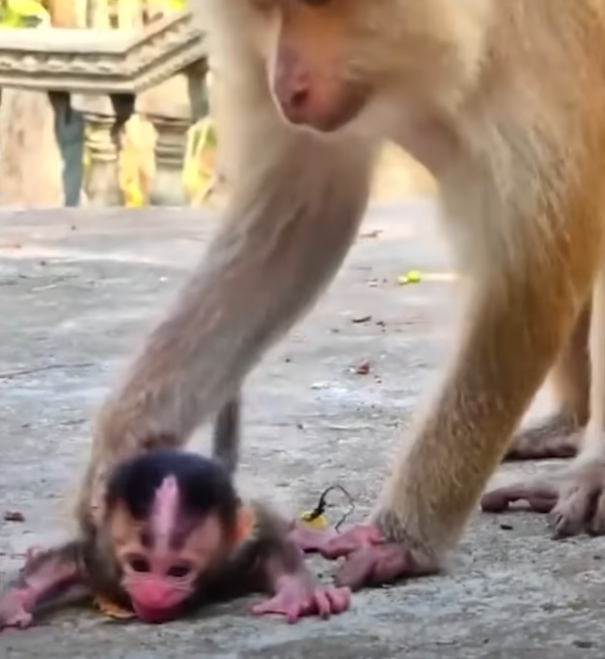
In primate societies, the bond between a mother and her offspring is typically strong and nurturing. However, instances of maternal neglect or abuse do occur and have been documented in various species, including macaques. Such behaviors can have profound effects on the development and well-being of the infant.
Environmental Stressors: Suboptimal conditions, such as limited resources or high population density, can increase stress levels in mother monkeys, potentially leading to neglectful or abusive behaviors.
PRIMATE RESEARCH INSTITUTE
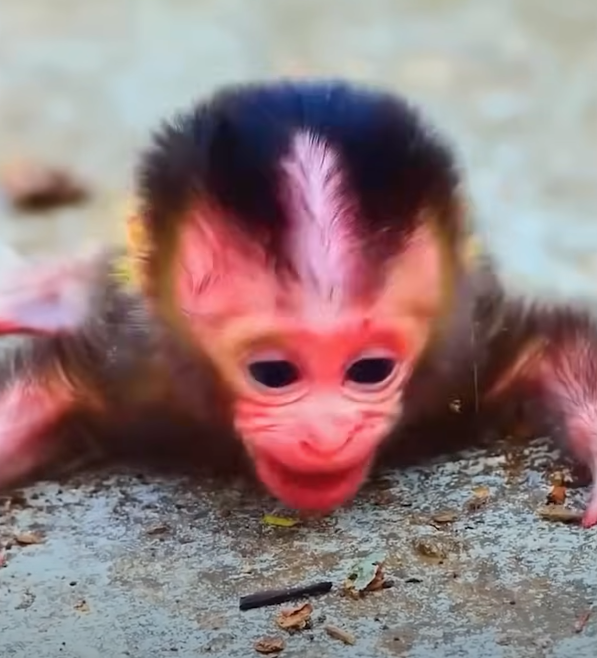
Learned Behavior: Some studies suggest that abusive behaviors can be transmitted across generations. For example, a mother who was abused as an infant may be more likely to exhibit similar behaviors toward her own offspring.
HFG
Individual Temperament: Variations in individual temperament and hormonal influences can also play a role in maternal behavior, with some mothers being more prone to aggression or neglect.
Physical Harm: Abusive behaviors, such as dragging or hitting, can cause immediate physical injuries to the infant.
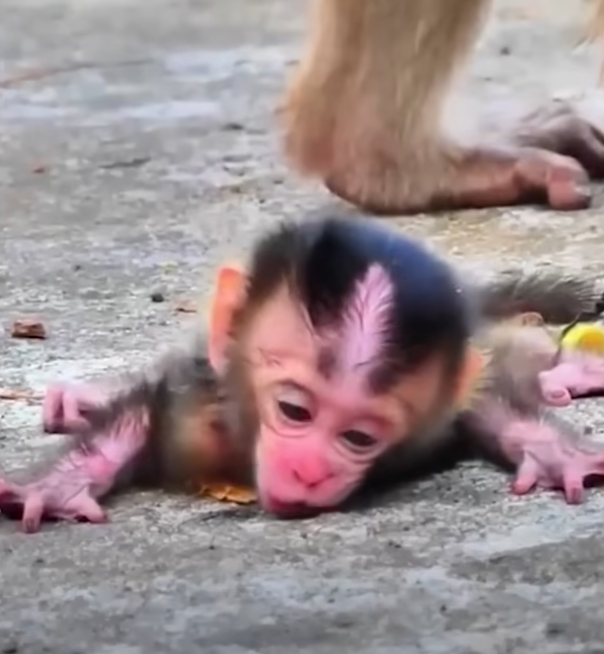
Psychological Impact: Early-life stress from maternal neglect or abuse can lead to long-term behavioral and psychological issues, including increased anxiety and impaired social development.
Survival Challenges: Without proper maternal care, infants may struggle to obtain necessary nutrition and protection, reducing their chances of survival.
In cases where maternal neglect or abuse is observed, intervention by wildlife rehabilitation centers can be crucial. These centers provide the necessary care to ensure the infant’s survival and healthy development. For instance, Dublin Zoo recently rehomed a baby orangutan, Sibu Junior, at the Monkey World – Ape Rescue Centre after his mother was unable to care for him. At the sanctuary, Sibu Junior will receive specialized care to aid his development and integration into a group.
THE SUN
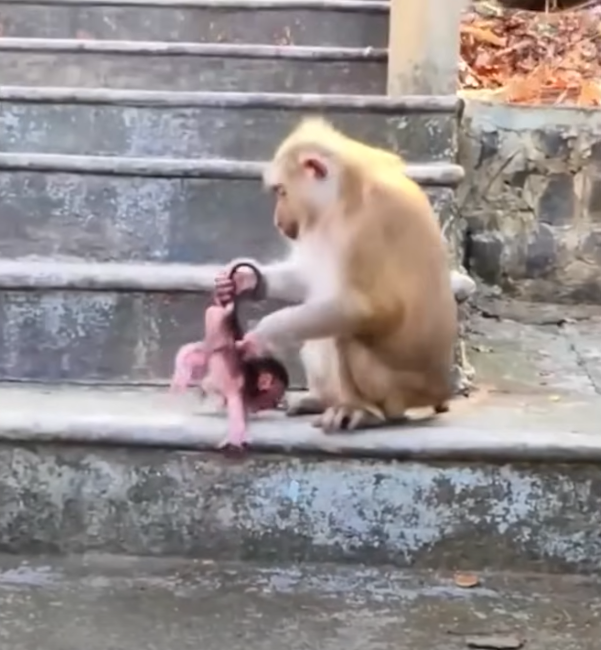
Understanding the factors that contribute to maternal neglect and abuse in primates is essential for developing effective intervention strategies and improving the welfare of these animals in both wild and captive settings.
For a visual example of maternal neglect in primates, you might find the following video insightful:
